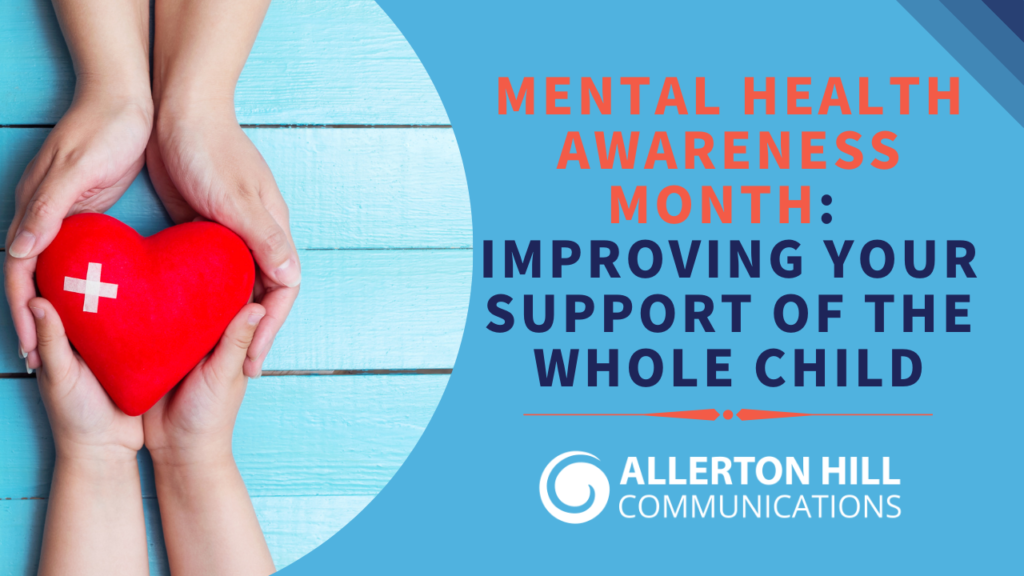When was the last time you stopped and truly checked in with yourself? Let’s face it, we’ve all experienced trauma over the last two years, and the children you serve every day have suffered more than most.
According to the Centers for Disease Control and Prevention (CDC), from March 2020 to October 2020, mental health-related emergency department visits increased 24% for children ages 5 to 11 and 31% for those ages 12 to 17 compared with the same period in 2019.
Additionally, in October of 2021, the American Academy of Pediatrics, the American Academy of Child and Adolescent Psychiatry and the Children’s Hospital Association declared a national state of emergency in children’s mental health. Among other things, the declaration called on advocates and policymakers to increase federal funding, address regulatory challenges, and accelerate the adoption of sustainable models of school-based mental healthcare.
Even before the pandemic, schools were increasing their efforts to support the whole child. May is Mental Health Awareness Month. More specifically, May 10-16 is National Mental Health Awareness Week. We encourage you to take this time to renew your efforts around supporting the mental health of all who make up your district — from teachers and staff to students and families (ahem, this includes yourself).
Here are a few innovative ways some of our clients have increased their mental wellness curriculum and systems of support in recent months:
- Mariemont City Schools launched its Warriors BEwell program in the spring of 2020 after partnering with 1N5 to survey students, families and staff about the school climate surrounding mental health. They introduced the Sources of Strength program and work with community partners to ensure every student, family and staff member has access to high-quality and evidence-based services and resources. Additionally, the district hosts an annual Warrior Run to help pay for the district’s mental health programming.
- Dover City Schools implemented Second Steps, a K-5 program that brings continuity to students’ social-emotional learning; and Positive Action, a program for grades 6-12 that’s designed to improve youth academics, behavior and character. The programming was made possible thanks to a grant from Tuscarawas Alcohol, Drug Addiction and Mental Health Services as part of the Recovery Ohio initiative supported by the Ohio Department of Education.
- Marysville Exempted Village School District provides School Navigators in partnership with the Mental Health & Recovery Board of Union County and Maryhaven, central Ohio’s largest behavioral health services provider. The navigators deliver preventive curricula, screen students for suicide risk, and refer students to community-based resources. The program has been recognized as one of the best in Ohio and the district is working with Miami University to develop a plan that can be replicated in other school districts across the state and nation.
- Dublin City Schools and Worthington Schools are partnering to offer Be Well events, which offer presentations and resources for families that focus on mental wellness, safety and suicide prevention, and academic and social-emotional success.
Additionally, there are several free resources to give you ideas and help you get started, such as On Our Sleeves®, the movement for children’s mental health. Its One Million Classroom guide is specially designed to boost the mental wellness of kids in all grade levels, and weekly emails are tailored to educators.
So … how will you improve the culture of mental health in your schools? Tweet us @Outreach_Expert using #MentalHealthAwareness to let us know how you’re supporting the mental health of your district.


